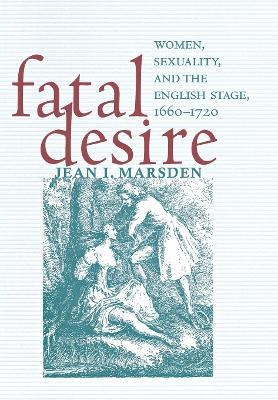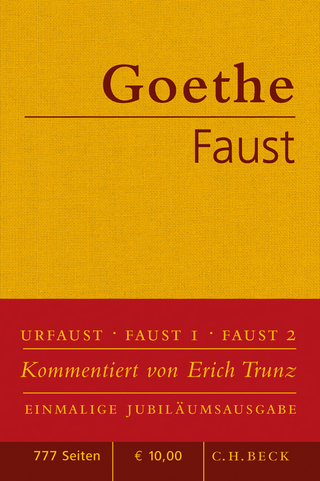
Fatal Desire
Women, Sexuality, and the English Stage, 1660–1720
Seiten
2006
Cornell University Press (Verlag)
978-0-8014-4447-0 (ISBN)
Cornell University Press (Verlag)
978-0-8014-4447-0 (ISBN)
- Lieferbar (Termin unbekannt)
- Versandkostenfrei innerhalb Deutschlands
- Auch auf Rechnung
- Verfügbarkeit in der Filiale vor Ort prüfen
- Artikel merken
Informed by film theory and a broad historical approach, Fatal Desire examines the theatrical representation of women in England, from the Restoration to the early eighteenth century—a period when for the first time female actors could perform in...
Informed by film theory and a broad historical approach, Fatal Desire examines the theatrical representation of women in England, from the Restoration to the early eighteenth century—a period when for the first time female actors could perform in public. Jean I. Marsden maintains that the feminization of serious drama during this period is tied to the cultural function of theater. Women served as symbols of both domestic and imperial propriety, and so Marsden links the representation of women on the stage to the social context in which the plays appeared and to the moral and often political lessons they offered the audience. The witty heroines of comedies were usually absorbed into the social fabric by marrying similarly lighthearted gentlemen, but the heroines of tragedy suffered for their sins, real or perceived. That suffering served the dual purpose of titillating and educating the theater audience. Marsden discusses such plays as William Wycherley's Plain Dealer (1676), John Vanbrugh's Provoked Wife (1697), Thomas Otway's Orphan (1680), Thomas Southerne's Fatal Marriage (1694), and William Congreve's Mourning Bride (1697). The author also addresses tragedies written by three female playwrights, Mary Pix, Catharine Trotter, and Delarivier Manley, and sketches developments in tragedy during the period.
Informed by film theory and a broad historical approach, Fatal Desire examines the theatrical representation of women in England, from the Restoration to the early eighteenth century—a period when for the first time female actors could perform in public. Jean I. Marsden maintains that the feminization of serious drama during this period is tied to the cultural function of theater. Women served as symbols of both domestic and imperial propriety, and so Marsden links the representation of women on the stage to the social context in which the plays appeared and to the moral and often political lessons they offered the audience. The witty heroines of comedies were usually absorbed into the social fabric by marrying similarly lighthearted gentlemen, but the heroines of tragedy suffered for their sins, real or perceived. That suffering served the dual purpose of titillating and educating the theater audience. Marsden discusses such plays as William Wycherley's Plain Dealer (1676), John Vanbrugh's Provoked Wife (1697), Thomas Otway's Orphan (1680), Thomas Southerne's Fatal Marriage (1694), and William Congreve's Mourning Bride (1697). The author also addresses tragedies written by three female playwrights, Mary Pix, Catharine Trotter, and Delarivier Manley, and sketches developments in tragedy during the period.
Jean I. Marsden is Professor of English at the University of Connecticut; author of The Re-Imagined Text: Shakespeare, Adaptation, and Eighteenth-Century Literary Theory; and editor of The Appropriation of Shakespeare: Post-Renaissance Reconstructions of the Works and the Myth.
| Erscheint lt. Verlag | 11.4.2006 |
|---|---|
| Verlagsort | Ithaca |
| Sprache | englisch |
| Maße | 152 x 229 mm |
| Gewicht | 454 g |
| Themenwelt | Literatur ► Lyrik / Dramatik ► Dramatik / Theater |
| Kunst / Musik / Theater ► Theater / Ballett | |
| ISBN-10 | 0-8014-4447-0 / 0801444470 |
| ISBN-13 | 978-0-8014-4447-0 / 9780801444470 |
| Zustand | Neuware |
| Informationen gemäß Produktsicherheitsverordnung (GPSR) | |
| Haben Sie eine Frage zum Produkt? |
Mehr entdecken
aus dem Bereich
aus dem Bereich
Der Tragödie erster und zweiter Teil. Urfaust
Buch | Hardcover (2021)
C.H.Beck (Verlag)
10,00 €


